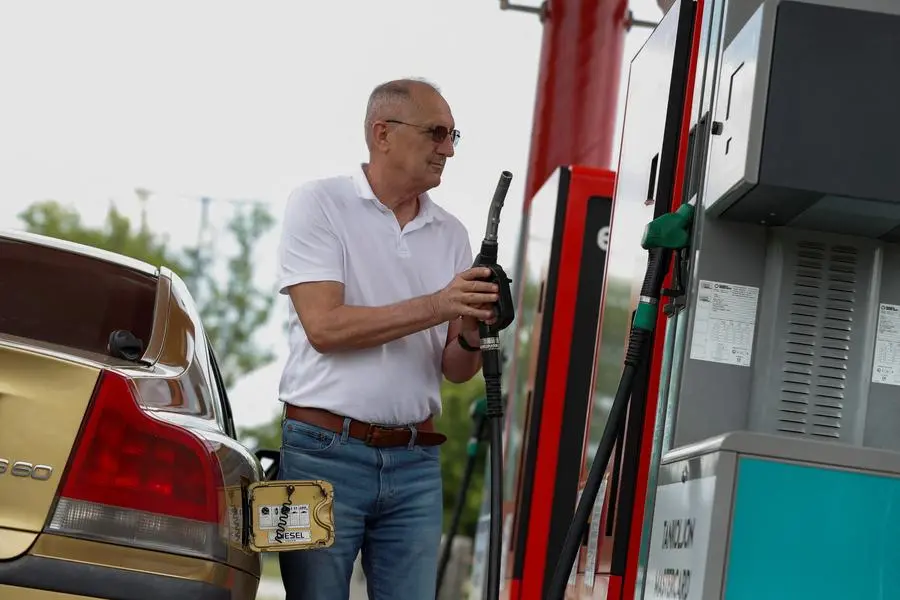PHOTO
ESZTERGOM - Drivers from outside Hungary must pay around 60-70 percent more for fuel in the country than locals, following a move by the government to limit reduced prices to Hungarian-registered vehicles.
The policy, introduced last month, has triggered a spat with the European Union, but is popular with Hungarians who are struggling with surging inflation.
Retail fuel prices have soared to record highs in many countries, prompting governments around the world to boost subsidies or trim taxes to shield consumers from the financial strain.
Hungary capped fuel prices in mid-November and added caps to some food staples in February. The cheaper fuel saw a wave of Slovak citizens cross the border to the Hungarian city of Esztergom to fill their tanks, but the new measure by Prime Minister Viktor Orban's government has ended such fuel tourism.
These days local petrol stations in Esztergom serve mostly Hungarian motorists.
Last week EU industry chief Thierry Breton told Hungary to suspend discriminatory fuel pricing against vehicles with foreign licence plates or risk being taken to court.
"This is an extraordinary situation and we need to do what such situations require," Orban said in response.
Hungarian motorbiker Miklos Dibaczi, speaking at a petrol station in Esztergom, said: "I think it is the right of every country to decide what fuel price they set. When there is a central ruling in the EU that salaries and pensions should be the same in all countries then we can say that everything should cost the same."
Orban said that without the cap on retail fuel prices at 480 forints ($1.26) per litre, market prices for fuel would be around 700 to 900 forints.
On Friday, he said the price caps on fuel, some basic foods and energy bills could stay in place for a longer period if the war in Ukraine is entrenched. The caps, which have lopped 5 to 6 percentage points off headline inflation, are due to expire next month.
Some foreign motorists were upset by the price difference they had to pay. "It's not good for relations between countries, for France, Germany, Italy, Slovenia, and Hungary. It's not a good [way of] thinking," said French tourist Mael Dos Santos.
(Reporting by Krisztina Fenyo, Writing by Krisztina Than Editing by Alexandra Hudson)





















